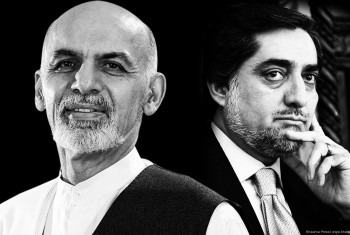The recent agreement between the United States and the Taliban is the product of a broader agreement that could be described as a kind of deal between Pakistan, the United States, the Taliban, Saudi Arabia and the UAE. Besides, the agreement has been reached with parties providing the Taliban with financial, political, or ideological support.
The Taliban’s sidelining of the Kabul government in the process is also quite clear, as the Taliban did not recognize the government in the peace process at all but from what we see today the Taliban seem to have agreed to engage with the central government anyway. The only problem is that there are currently two governments in Afghanistan – one led by Ashraf Ghani and the other headed by Abdullah Abdullah.
The Taliban are expected not to negotiate with Abdullah Abdullah because they see the Jihadists as their main enemy, but will probably negotiate with Ashraf Ghani’s government. It can be assumed that the Americans have convinced the Taliban that they will not come to power militarily, and first they need to get a share of power to achieve their goal. Sharing power is possible only with Ashraf Ghani, a liberal Democrat.
A peace committee appears to be set up in Kabul after a government comes to power. Encouraged by Pakistan, Saudi Arabia, the United Arab Emirates and the United States, the Taliban will enter into talks with the committee. In the process, as the US has predicted, the Taliban will first become a power partner, but in the end, if the Taliban form a party and give up the war they could gain full power later because the incumbent government does not have much popular support and legitimacy. It should also be kept in mind that the Taliban have a good standing in traditional Afghan society.
Considering what was said it is expected that after the US-Taliban agreement, the ground for peace and negotiation between the central government and the Taliban will gradually be prepared. In that case, the process of internal peace in Afghanistan will be followed. Of course, the peace process does not mean that peace between the Taliban, the US and the central government will be fully restored in Afghanistan. There are more than 20 armed groups in Afghanistan that have no role in the negotiations. There is also ISIS who claims to be a caliph. Moreover, ISIS is currently operating in Afghanistan.
Concerning the divisions between Abdullah Abdullah and Ashraf Ghani and each one’s emphasis on their presidency, as well as the fact that they have been sidelined in the Doha negotiations, they have now begun a complicated game, having first held the elections without Washington’s coordination. After the elections, Ashraf Ghani and the Election Commission without coordination with Abdullah Abdullah announced that Ashraf Ghani had won, but Abdullah Abdullah did not accept the result, so today we see two governments in Afghanistan. But Ashraf Ghani’s government is in fact official in Afghanistan because he still has legal mechanisms in place. Also, the US and many European delegates did not attend the inauguration of Abdullah Abdullah and showed that they recognize Ashraf Ghani as president. In this regard, although Abdullah Abdullah’s government has no legal standing and that he knows he has no chance of presidency, he seeks to win his share of power.
Ashraf Ghani has recently offered 40 per cent of the power to Abdullah Abdullah but the latter has not accepted the share yet.
It looks like eventually US envoy Zalmay Khalilzad, who is in Kabul, will intervene in the current governance process in Afghanistan and bring Abdullah to the negotiating table, almost the same that happened when John Kerry was in office; that is today a new government will be formed with some differences. In this new government, space will also be opened for the Taliban, and Zalmay will probably succeed in bringing the three currents – Ashraf Ghani, Abdullah Abdullah and Taliban to the negotiating table to pull Afghanistan out of the current situation.










0 Comments